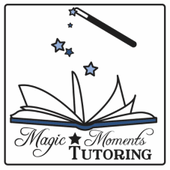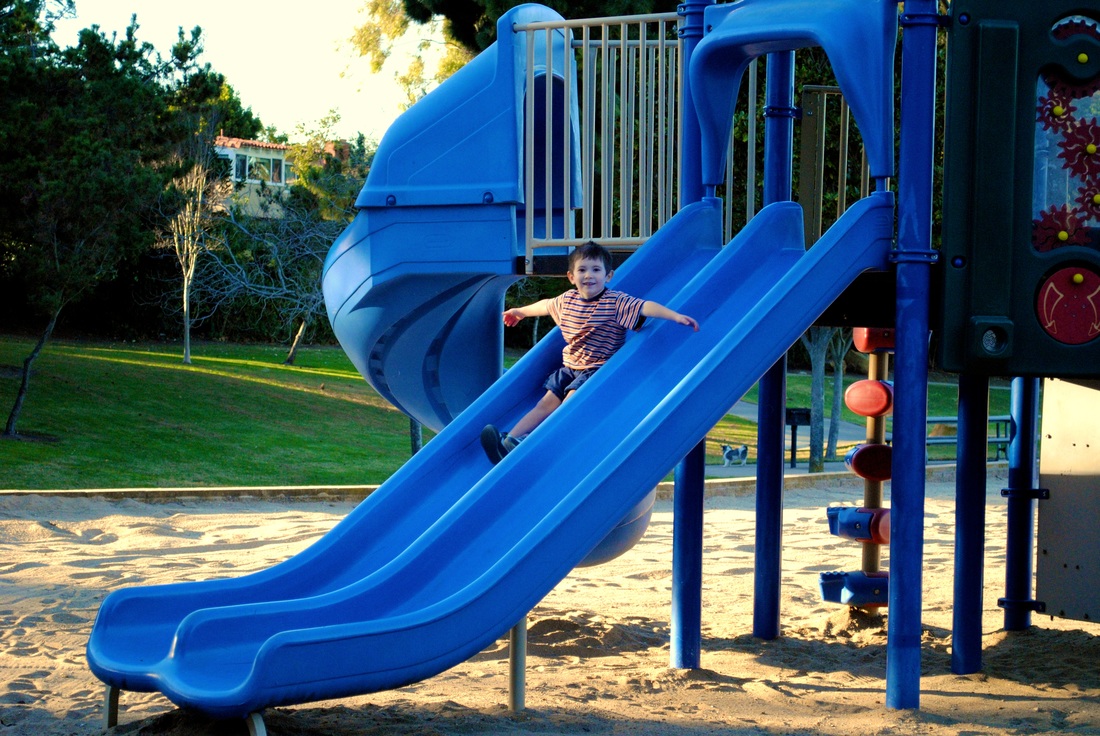Summertime evokes images of popsicles, sprinklers and endless days of childhood magic. But for teachers, especially those who work with students who have fought hard to make gains this school year, the image we see is a slide. Slides sound like fun. Bright and colorful, one of childhood's quintessential playthings. But the slide that I envision is a far more sinister one.....the summer slide.
The summer slide is a term used to describe the learning loss that occurs during the summer vacation. And it is a very big deal. Struggling students are particularly at risk for losing ground in their quest to become a fluent reader, as are students from lower socio-economic groups.
The summer slide is a term used to describe the learning loss that occurs during the summer vacation. And it is a very big deal. Struggling students are particularly at risk for losing ground in their quest to become a fluent reader, as are students from lower socio-economic groups.
The statistics are sobering. According to a report by the National Summer Learning Association, almost all students experience some degree of learning loss. Their conservative estimate is that on average, students lose 2 months or approximately 22% of the school year's worth of learning. That is nearly one quarter of the whole school year! Teachers spend at least a month reteaching material that students have forgotten over the summer. Children typically score lower on standardized tests at the end of summer vacation than they do on the same tests at the beginning of the summer. The problem of the summer slide has been researched and documented for nearly 100 years. It is clear that action is necessary to avoid loss of learning.
Personally, I am a big proponent of summers filled with beaches, outdoor play and lazy afternoons. Childhood is short and should be cherished. However, I believe it is possible to keep the magic and the learning. There are several ways that you can help stop the summer slide:
Tutoring: There are a number of opportunities for summer learning available including summer school. Tutoring is a perfect match for the summer months because it is individualized, customized to your schedule and intensive. Summer school programs are wonderful, but have multiple students of different grade levels and abilities and only so many adults to go around. Programs usually run for several hours for a couple of weeks in the summer and may or may not work with your work schedule and family vacation. In contrast, with tutoring, the only focus is your child and what they need to learn next. Tutoring can be spread out over the whole summer to give kids more hours each week for fun in the sun, but keep new skills fresh. Devoting 2 hours a week to tutoring can stop the summer slide or even help a struggling child move forward in their learning.
Library Summer Reading Programs: Summer library reading programs are a great motivator to keep kids reading. Practice is one of the keys to minimizing the loss of learning. Librarians are a wonderful resource for recommending books and helping your child find a story that they will be interested in.
Reading Aloud: There is a tendency for many families to stop reading aloud to their children once they begin to read to themselves or enter school. During the school day, teachers read to children multiple times each day. This is valuable not only for modeling fluency but for expanding vocabulary and exposing children to sophisticated and reliably correct language patterns. The best thing about reading aloud is that it can be done anywhere and anytime. All you need is a book! Bring one camping, or on a picnic, or to the beach.
Listen to Audiobooks: For many of us, summer means travel and travel means that I, for one, can't read to my kids as long as we are in a moving vehicle. But that travel is a great opportunity to listen to audiobooks as a family. You can answer questions and talk about interesting parts and an exciting story helps a long car ride pass quickly.
Learning in Real Life: Gardening and cooking, vacation planning and map reading are all real life ways to activate a child's learning. Engaging your children in helping you solve these real world riddles allows them to use math, reading, social studies, and science.
The summer slide is a problem, but not one that is insurmountable. Working together, we can help students start the new school year strong.
Personally, I am a big proponent of summers filled with beaches, outdoor play and lazy afternoons. Childhood is short and should be cherished. However, I believe it is possible to keep the magic and the learning. There are several ways that you can help stop the summer slide:
Tutoring: There are a number of opportunities for summer learning available including summer school. Tutoring is a perfect match for the summer months because it is individualized, customized to your schedule and intensive. Summer school programs are wonderful, but have multiple students of different grade levels and abilities and only so many adults to go around. Programs usually run for several hours for a couple of weeks in the summer and may or may not work with your work schedule and family vacation. In contrast, with tutoring, the only focus is your child and what they need to learn next. Tutoring can be spread out over the whole summer to give kids more hours each week for fun in the sun, but keep new skills fresh. Devoting 2 hours a week to tutoring can stop the summer slide or even help a struggling child move forward in their learning.
Library Summer Reading Programs: Summer library reading programs are a great motivator to keep kids reading. Practice is one of the keys to minimizing the loss of learning. Librarians are a wonderful resource for recommending books and helping your child find a story that they will be interested in.
Reading Aloud: There is a tendency for many families to stop reading aloud to their children once they begin to read to themselves or enter school. During the school day, teachers read to children multiple times each day. This is valuable not only for modeling fluency but for expanding vocabulary and exposing children to sophisticated and reliably correct language patterns. The best thing about reading aloud is that it can be done anywhere and anytime. All you need is a book! Bring one camping, or on a picnic, or to the beach.
Listen to Audiobooks: For many of us, summer means travel and travel means that I, for one, can't read to my kids as long as we are in a moving vehicle. But that travel is a great opportunity to listen to audiobooks as a family. You can answer questions and talk about interesting parts and an exciting story helps a long car ride pass quickly.
Learning in Real Life: Gardening and cooking, vacation planning and map reading are all real life ways to activate a child's learning. Engaging your children in helping you solve these real world riddles allows them to use math, reading, social studies, and science.
The summer slide is a problem, but not one that is insurmountable. Working together, we can help students start the new school year strong.


 RSS Feed
RSS Feed